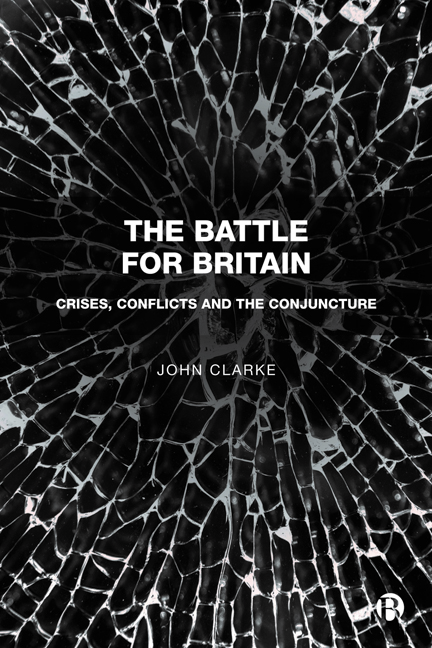7 - ‘The Best Country in the World’: Race, Culture, History
Published online by Cambridge University Press: 18 January 2024
Summary
In the previous chapter I argued that the trajectory of the present conjuncture was forged by a distinctive – and accelerating – accumulation of crises, while insisting that crises are also the focus of political-cultural efforts to define them, give them meaning and make them matter to audiences. The pandemic was the focus of such definitional struggles from the beginning, as the government strove to use it to articulate versions of British exceptionalism (‘world beating’ responses) while others sought to draw attention to failures and hidden dynamics. Not for the first time in recent British history, crisis and questions of race became entangled. In the 1970s, the deepening crisis of hegemony was displaced into a projected crisis of ‘Law and Order’, embodied in the threat of young black men – ‘muggers’ – roaming city streets (Hall et al, 2013: 240– 242, 268– 271). The pandemic saw different articulations of crisis and race, as the racialised inequalities of the pandemic intersected potently with the global reaction to the murder of George Floyd. This chapter explores these connections and their relationships to both longer standing anti-racist campaigns (especially around policing) and to emerging challenges, particularly around the history of British colonialism and imperialism. It then examines the political responses to these emergent mobilisations, involving strategies of denial, deferral and deflection.
These political-cultural strategies to contain and deflect invoked a distinctive version of the ‘culture wars’ in which efforts were made to reframe the question of racism. Exploring this strategy opens a wider discussion of the significance of culture wars for an analysis that treats politics as the site of political-cultural articulations, in which discursive framings, historical narratives and potent symbolisations of the nation and its people occupied central places.
Who can't breathe?
As I suggested in the previous chapter, COVID-19 embodied many of the distinctive features of contemporary crises – formed in transnational processes and relations with spatially differentiated consequences (across and within countries) and inextricably linked to other crises, notably those of the current nation-state form. Its trajectory was both familiar and distinctive: it encountered national and international organisations illprepared for its demands; it flowed along well-worn routes of circulation, tracking deeply embedded structures of inequality (globally and within nations).
- Type
- Chapter
- Information
- The Battle for BritainCrises, Conflicts and the Conjuncture, pp. 130 - 148Publisher: Bristol University PressPrint publication year: 2023

